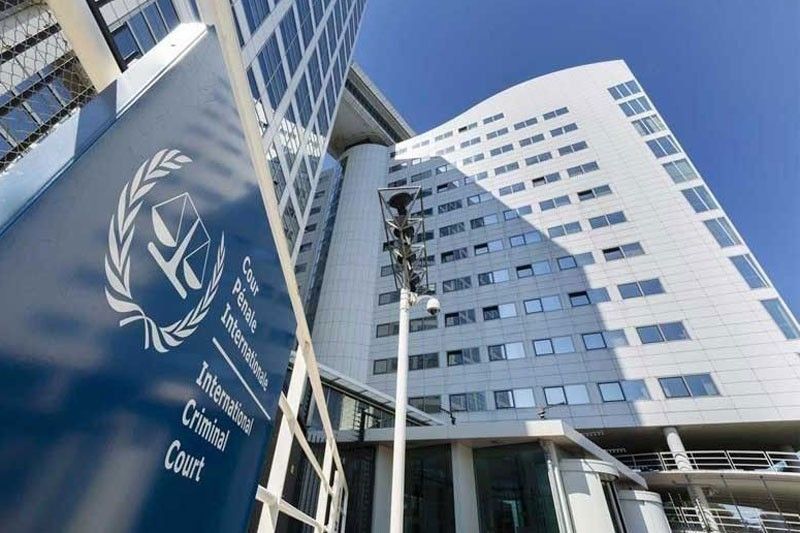SC orders government to answer petition vs ICC withdrawal

MANILA, Philippines — The Supreme Court (SC) has ordered Malacañang to answer the petition filed last month by six opposition senators challenging the administration’s withdrawal of the country’s membership in the International Criminal Court (ICC).
In session yesterday, the SC justices also decided to set the case for oral arguments on July 24.
The SC required the respondents – Executive Secretary Salvador Medialdea, chief presidential legal counsel Salvador Panelo, Department of Foreign Affairs (DFA) Secretary Alan Peter Cayetano and Philippine Ambassador to the UN Teodoro Locsin Jr. – to submit their comment to the petition within a non-extendible period of 10 days from notice.
In their petition filed last May 16, Sens. Francis Pangilinan, Franklin Drilon, Paolo Benigno Aquino IV, Leila de Lima, Risa Hontiveros and Antonio Trillanes IV asked the SC to invalidate the decision of the executive branch due to lack of necessary concurrence from the Senate.
The Senate minority sought the issuance of an order compelling Cayetano and Locsin to revoke the notice sent last March for withdrawal of the Philippine government’s signature from the Rome Statute.
They alleged that the action of Malacañang violated the Constitution, which requires ratification of treaties and international agreements by the Senate.
The petitioners specifically cited Article VII, Section 21 of the 1987 Constitution, which states that “entering into treaty or international agreement requires participation of Congress, that is, through concurrence of at least two-thirds of all the members of the Senate.”
They argued that the Office of the President and the DFA committed grave abuse of discretion in withdrawing the country’s membership in the ICC without the concurrence of the Senate.
The opposition senators added that the Rome Statute is a treaty validly entered into by the Philippines which has the same status as a law enacted by Congress.
Because of this status, the withdrawal from the Rome Statute would require the approval of Congress, they stressed.
The petitioners further alleged that the respondents committed usurpation of legislative powers which is punishable under the Revised Penal Code.
They cited the case of South Africa, which had notified the ICC of its intention to withdraw from the treaty.
The move was challenged by opposition figures in South Africa before its High Court, which ruled last Feb. 22, 2017 that President Jacob Zuma and his Cabinet’s ICC notification of withdrawal dated Oct. 16, 2016 was premature, procedurally irrational and that the government could not make the decision without the approval of Parliament.
In its diplomatic note to the UN secretary general, the government explained that the “decision to withdraw is the Philippines’ principled stand against those who politicize and weaponize human rights, even as its independent and well-functioning organs and agencies continue to exercise jurisdiction over complaints, issues, problems and concerns arising from its efforts to protect the people.”
President Duterte announced last March the government’s withdrawal of its ratification of the Rome Statute, a UN treaty creating the ICC.
Duterte cited “baseless, unprecedented and outrageous attacks” against him and his administration as the reason for his withdrawal as a state party.
The move came after ICC special prosecutor Fatou Bensouda started a preliminary examination on the alleged human rights violations under the Duterte administration’s intensified war on drugs.
Duterte defended his decision to take back the Philippines’ ratification of the Rome Statute, noting that the treaty is not a law since it was not published in the Official Gazette when the Philippines ratified it in August 2011, during the time of former President Benigno Aquino III.
Under the present administration, the Philippines has lost part of its territory to China when Beijing seized physical control of Sandy Cay, the Philippines’ former top diplomat said yesterday.
Former DFA secretary Albert del Rosario added that the seizure should have been protested by the administration, in an apparent response to Cayetano’s challenge for proof of territorial loss under the Duterte administration.
Del Rosario also said the Philippines should have protested the landing of bombers on Woody Island.
“The Philippines lost control of Sandy Cay (late last year) when President Duterte ordered the cessation of construction there due to vehement reaction from China,” he said.
China’s coast guard has, according to Del Rosario, since then surrounded Sandy Cay at all times, effectively seizing physical control of it.
“I think that a very strong protest then should have been filed,” Del Rosario added.
Meanwhile, China has downplayed the landing of its bombers in the South China Sea, saying there is no need to “over-interpret” the “normal” activities of its military.
For its part, the DFA said it fully supports the policy of President Duterte that the Philippines will continue to fight for its rights in the South China Sea, including Cayetano’s pronouncement that the “Philippines will not give up a single inch of its territory in the (South China Sea).”
The Philippines is gaining a lot from the strategy of President Duterte in his handling of the country’s maritime and territorial dispute in the South China Sea with China, Defense Secretary Delfin Lorenzana said.
Lorenzana made this remark in a live interview with ANC at the sidelines of the Shangri-La Dialogue held in Singapore last week, where he also admitted that the country, while now having official documents to prove that it has sovereign rites over parts of the South China Sea, does not have the capability to secure and defend its maritime domain in the area.
“Our world today not only needs excellent lawyers, but brave ones who are willing to take the narrow road. To do what is right and what is just no matter the cost,” Robredo said in her keynote speech at the 76th commencement exercises of the Far Eastern University Institute of Law. – With Pia Lee-Brago, Jaime Laude, Helen Flores
- Latest
- Trending






























